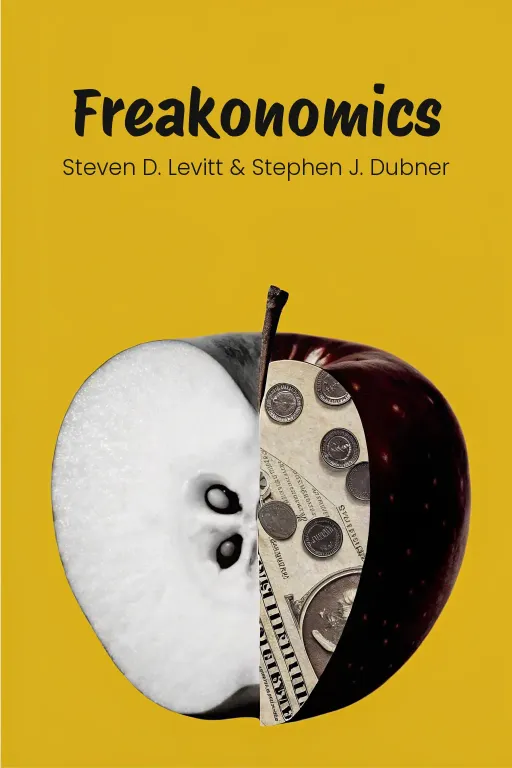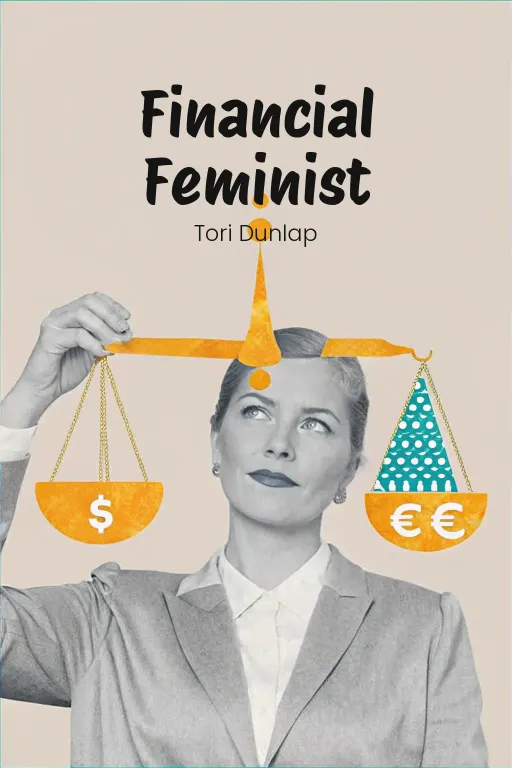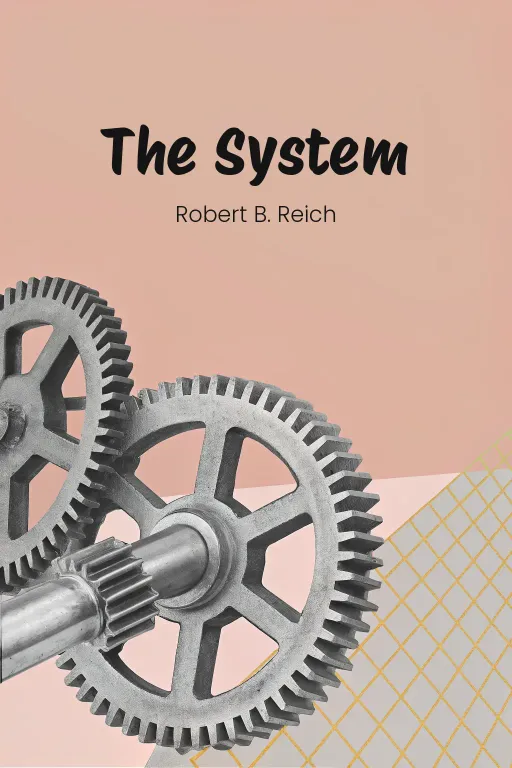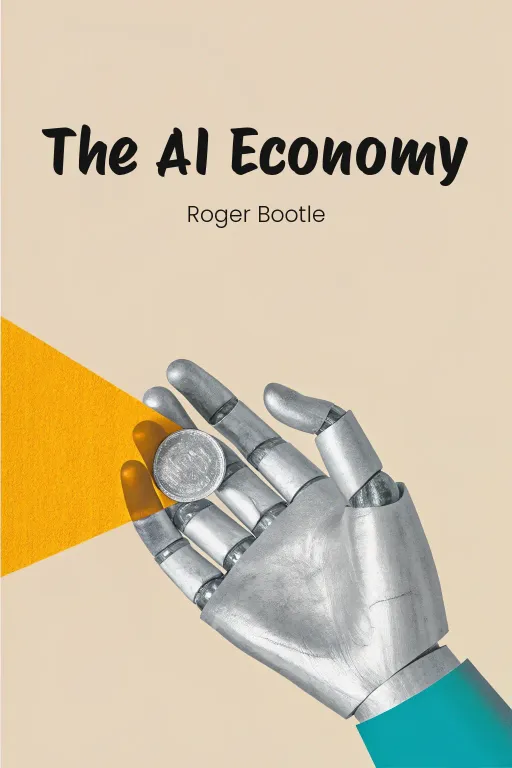
Freakonomics
Economics
Steven D. Levitt
Summary of "Freakonomics: A Rogue Economist Explores the Hidden Side of Everything"
"Freakonomics: A Rogue Economist Explores the Hidden Side of Everything" by Steven D. Levitt and Stephen J. Dubner is a seminal work that seeks to reinterpret human behavior through the lens of economics, thus unveiling the underlying incentives that govern decision-making across various sectors of society. The book eschews conventional economic theories, attempting instead to decode human choices and societal norms by fostering an investigative approach based on empirical data and case studies. In doing so, Levitt and Dubner challenge readers' preconceived notions and ignite contemplation on how economic principles can elucidate complex social phenomena.
Introduction: An Inquiry into the Nature of Economics
At its core, "Freakonomics" champions the idea that economics is not merely an abstract study confined to the realms of finance and commerce; rather, it serves as a potent tool to interrogate conventional wisdom and unveil the reality of human behavior. Levitt and Dubner assert that while morality reflects how people wish the world to operate, economics delineates how the world truly functions. This differentiation underscores their argument that incentives—often subtle, yet potentially profound—play a pivotal role in shaping our actions.
The authors boldly position themselves at the intersection of economics and social inquiry, inviting readers to embark on a journey that highlights connections among otherwise disconnected societal issues. Through their provocative questions—such as the curious parallels between schoolteachers and sumo wrestlers or the perplexing circumstances surrounding drug dealers who reside with their mothers—the writers reveal the intricate web of correlations that bind societal elements together. By engaging with these themes, they invite deeper reflections on the nature of human interaction, societal structures, and the unrecognized economic forces at work beneath the surface.
Themes and Structural Overview
Throughout "Freakonomics," the authors masterfully weave an exploration of various themes, including the role of incentives, information asymmetry, crime and its motivations, parenting dynamics, and the complexities of societal behavior. The text's structure facilitates a logical progression, utilizing case studies, analytical insights, and comprehensible anecdotes to elucidate these themes.
In examining high-stakes testing in education, Levitt and Dubner dissect the consequential pressures imposed on educators and students alike, revealing how a culture of accountability can breed ethical compromise. Furthermore, through the lens of sumo wrestling, the authors illustrate how the alignment of incentives can lead to corruption and dishonesty, demonstrating the broader implications of this dynamic across sectors.
Moving beyond education, Levitt and Dubner shift their focus to the politico-economic nexus through the examination of the Ku Klux Klan's information control. This analysis underscores how knowledge—and its dissemination—affects power dynamics, paralleling the authors' earlier discussions on real estate agents and the manipulation of information to exploit clients.
The exploration of criminality, particularly the multifaceted issues surrounding drug dealing and crime rates, serves as a critical point of intersection. Through meticulous research, the authors investigate why crime is not merely a product of individual choice but rather a consequence of systemic factors rooted in socioeconomic conditions.
The phenomenon of parenting and its impact on child outcomes further broadens the examination of incentives. Levitt and Dubner navigate through the empirical findings, emphasizing that parental education and socioeconomic status serve as more accurate predictors of success than conventional beliefs regarding parenting practices. Notably, the thematic journey culminates in an investigation into the complex socio-economic factors that provoke youth participation in gang culture.
Incentives and Cheating: The Educational Landscape
High-Stakes Testing in Education
The discussion on high-stakes testing emerges as a pivotal exploration into the ethical dilemmas faced by educators within the Chicago Public Schools. These policies, instituted to enhance accountability, created a culture where the performance of students dictated the professional futures of teachers. The stakes were undeniably high; schools underwent sanctions or closures based on their test scores, thereby inducing pressures that could lead educators to manipulate results.
Advocates of high-stakes testing argue that increased accountability drives standards upwards. Conversely, critics demonstrate how this environment cultivates a culture of cheating, where the drive for inflated scores supersedes ethical considerations. The algorithmic analyses conducted by Levitt and Dubner, which unearthed patterns indicative of score manipulation, serve as a chilling reminder of the extent to which desperation can blur moral lines.
Through the lens of education, the chapter on cheating articulates a broader narrative about the ethical fabric of society and the trust placed in institutions. The high-stakes environment new revealed a tragic irony: the inflation of test scores masked deeper educational inadequacies, ultimately leaving students ill-prepared for future academic challenges.
The Sumo Wrestling Analogy
Employing the metaphor of sumo wrestling, Levitt and Dubner draw parallels that illustrate the sordid dance of incentive and ethical compromise. In sumo, the cloud of financial pressure stemming from match-fixing creates a breeding ground for corruption, much like the environment fostered by high-stakes testing. Educators, akin to sumo wrestlers striving for financial rewards and job security, become ensnared in a cycle of dishonesty, igniting ethical quandaries that compromise the integrity of their teaching.
The authors navigate this analogy deftly, linking the extrinsic rewards motivating cheating within education to those within professional sports. The broader implications emphasize that the allure of success, when fused with misaligned incentives, can spawn damaging consequences that erode the values foundational to both education and competition.
Insights into Cheating and Human Nature
In countering traditional beliefs about human integrity, Levitt and Dubner present compelling cases illustrating the pervasiveness of cheating in society. Cheating, they argue, is not simply an aberration but rather a reflection of the intricate interplay between human aspirations and systemic pressures. The case of Chicago Public Schools, characterized by teachers inflating test scores to ensure job security, offers a glimpse into the moral complexities inherent in a high-pressure system.
As the authors delve deeper, they examine the motivations behind cheating, suggesting that individuals often view their circumstances through a lens of necessity rather than immorality. The systemic flaws that incentivize such behavior become apparent, as do the broader societal implications when ethical standards are compromised for financial or professional gain.
Information Asymmetry and Power Dynamics
The Ku Klux Klan as an Example of Information Control
Levitt and Dubner's dissection of the Ku Klux Klan serves as a cautionary tale about the perils of unchecked power derived from information control. Stetson Kennedy’s infiltration of the organization stands as a testament to the effectiveness of illuminating hidden structures of power. By exposing the Klan's inner workings, Kennedy destabilized the organization’s aura of intimidation, illustrating how knowledge can be wielded as a weapon against fear and oppression.
This chapter frames discussions about agency, secrecy, and societal governance, compelling readers to consider how information asymmetry affects various sectors. The economic landscape, much like the Klan, is fraught with dynamics wherein power is disproportionately held by those with privileged access to knowledge.
Real Estate Agents and Manipulation
Shifting gears to an examination of real estate agents, the authors highlight the ethical dilemmas faced by these professionals, where incentives often conflict with client interests. Through empirically based findings, Levitt and Dubner reveal troubling patterns of information asymmetry, wherein agents gain relatively higher profits selling their properties compared to clients' homes.
The narrative unveils a profound truth about agency in a capitalist economy: the stakes of individual transactions are often undermined by moral compromises that arise from commission structures. As agents manipulate information to serve their interests, the bond of trust necessary for ethical transactions erodes, giving way to practices that exemplify the broader concerns about exploitation within economic arenas.
Online Dating and Misrepresentation
In exploring the realm of digital romance, Levitt and Dubner unveil how anonymity and incentives to present an appealing self can lead to widespread misrepresentation within online dating platforms. Human nature, governed by the pursuit of acceptance and validation, often results in embellished personas designed to seduce potential partners.
Statistics reveal that a significant portion of users inaccurately boost their attractiveness, echoing patterns observed in other facets of economic behavior. The authors' exploration of misrepresentation in the dating market heightens the dialogue surrounding identity, authenticity, and perception, as social constructs overshadow genuine human connection.
Crime Rates and Unconventional Explanations
The Rise and Decline of Crime in Urban America
The book delineates the tumultuous landscape of urban crime, particularly during the crack epidemic of the late 20th century. Levitt and Dubner analyze the interplay of drug abuse, socioeconomic instability, and crime, exposing the stark realities faced by communities ensnared by addiction and violence.
The authors challenge conventional narratives surrounding crime rates, most notably through the examination of intricate socio-political dynamics that influenced the observed declines. As crime rates plummeted in the 1990s, Levitt and Dubner provided nuanced explanations, underscoring factors such as incarceration rates and innovative policing rather than simplistic assertions attributing crime to moral decay.
The Abortion-Crime Hypothesis
One of the book's most contentious claims links the legalization of abortion to a significant decline in crime rates. Levitt and Dubner assert that legal access to abortion resulted in fewer unwanted births, which correspondingly diminished the cohort of children likely to engage in criminal behavior. The correlation, evidenced through statistical analyses, raises critical moral and ethical questions about the intersection of personal choice and societal outcomes.
The authors navigate this sensitive issue with care, emphasizing the implications of policy choices on future generations while recognizing the divergent moral perspectives that shape public discourse on abortion. Ultimately, the discussion prompts readers to confront complex questions surrounding choice, consequence, and the forces that dictate human behavior.
Parenting, Names, and Child Outcomes
Influences on Success
In contemplating parenting and child outcomes, Levitt and Dubner dissect the myriad factors that contribute to a child's likelihood of success. Their findings underscore the primacy of parental education and socioeconomic status, growing correspondent to academic achievement. Notably, the authors reveal the paradox of engagement—while parents engage in cultural enrichment to foster success, these actions often yield minimal empirical impact relative to socioeconomic advantages.
The challenge for parents lies in reconciling the desire to nurture their children with the realities dictated by inherited circumstances. The authors’ analysis serves as a needed reminder that while cultural efforts hold value, foundational socioeconomic conditions ultimately dictate the educational trajectories of children.
The Role of Names
Exploring the significance of names reveals profound connections between identity and societal perception. Names serve as vital indicators of societal aspirations and expectations, and control perceptions, whereby certain names can disadvantage individuals in professional contexts.
The juxtaposition of individuals like Winner and Loser Lane emphasizes the interplay between societal constructs and personal trajectories. The authors reveal that while names themselves do not determine outcomes, they serve as a barometer of socioeconomic conditions, shaping perceptions that can impact future opportunities.
Exploring Economic Structures in Informal Economies
Organizational Dynamics of Drug Dealing
Examining the organizational structure of drug dealing, Levitt and Dubner illuminate the stark realities faced by individuals working at the lower echelons of gang hierarchies. The analogy to corporate structures paints a vivid picture of inequity, where the illusion of wealth often obscures the brutal economic realities faced by foot soldiers.
The Black Disciples serve as a significant case study, as the authors detail the disparity between the financial rewards of gang leaders and those of lower-ranking members, accentuating the systemic inequities and the allure of the gang lifestyle to young individuals seeking economic stability amidst scarcity.
Socioeconomic Motivations
Levitt and Dubner deftly weave socioeconomic factors into their exploration of gang affiliation, highlighting how systemic inequality fosters pathways to gang culture for youth. The pervasive environment of poverty, limited educational opportunities, and lack of positive role models sets the stage for gang involvement, underscoring that choices made by young individuals often hinge on survival rather than moral considerations.
By framing the discussion around structural issues, the authors illuminate the broader social dynamics that perpetuate cycles of violence and crime, inviting readers to consider the fundamental societal changes necessary to break this cycle.
Levitt’s Economic Approach and Methodology
Transforming Curious Questions into Research
Levitt’s innovative approach to economics leans heavily on empirical experimentation and data-driven inquiry. The focus is not solely on quantifying economic metrics but rather on engaging with human behavior, seeking to uncover hidden narratives that inform societal choices.
Levitt's exploration of unconventional questions—such as the observed behaviors of drug dealers and crime rates—reflects a paradigm shift within economics that embraces explorative inquiry over deterministic models. This methodology encourages cross-disciplinary engagement, allowing for a richer understanding of human motivations and societal constructs.
The interconnectedness of Levitt's research rests on the synthesis of quantifiable data, illustrating the intricate tapestry of human behavior. Through this lens, the potential for economic inquiry extends beyond the quantitative, bridging gaps between disparate phenomena and inviting a comprehensive exploration of complex topics.
The Role of Data in Uncovering Truths
Levitt embodies an intuitive understanding of data as a narrative tool that captures the intricacies of human experience. Emphasizing that statistics should convey meaningful stories, he challenges readers to confront preconceived notions and recognize the deeper socioeconomic patterns at play.
The examination of contrasting life paths—characters like Ted Kaczynski and Roland G. Fryer—serves to highlight the unpredictable nature of individual outcomes, illustrating how beyond parental involvement, various factors, including peer influence and sheer luck, shape success narratives.
Behavioral Economics and Societal Patterns
Uncovering Hidden Incentives
The economic analysis of societal behaviors, such as voter participation and tax compliance, reveals the underlying dynamics of incentives shaping choices. Levitt and Dubner’s exploration underscores the complex interplay of social norms and rational decision-making, illustrating that behavior often arises not from lacking awareness of systemic frameworks but from the motivation to align with community expectations.
While rational choice theory posits that individuals weigh the costs and benefits of their actions, the authors reveal instances where social pressures cultivate engagement, unmasking the intricate motivations that govern civic involvement.
Randomness and Decision-Making
The unpredictable nature of decision-making, as illuminated through personal anecdotes and behavioral insights, exposes the cognitive biases often shaping our judgments. Levitt and Dubner illustrate how randomness defines choices, from daily encounters on the road to unexpected moments in gambling.
By reflecting on these experiences, the authors invite readers to engage with the multifaceted attitudes toward chances and their significance in shaping human experience. This exploration of randomness enhances the dialogue surrounding choice, urging a reflection on how choices are often influenced by factors beyond individual control.
Societal and Policy Reflections
Response to Critiques of Abortion Data
Navigating the contentious debate surrounding abortion data and its implications reveals the challenges of engaging with deeply polarizing topics in the context of statistical integrity. The varying responses to the abortion-crime hypothesis emphasize the importance of meticulous analysis in addressing critiques and refining methodologies.
As Levitt and Dubner confront critiques, they engage in the imperative discourse surrounding the intersection of social policies and individual choices, urging readers to consider the implications of empirical findings on larger societal constructs.
Unique Insights from Various Fields
The authors delve into an interdisciplinary exploration of macroeconomic theories and their practical implications by employing anecdotes from diverse sectors, including real estate and organ markets. The multifaceted connections constructed reveal unique insights into the complexities of incentives, reiterating the relevance of economic principles beyond conventional domains.
By engaging with various narratives, Levitt and Dubner emphasize that understanding economic structures can signify a vital preparedness for addressing the ethical dilemmas and social issues of contemporary life.
Conclusion: Economic Perspectives on Hidden Truths
Reevaluating Conventional Wisdom
In summary, "Freakonomics" serves as a remarkable exemplar of how economic principles can be wielded as tools to dismantle conventional wisdom. Levitt and Dubner compel readers not just to accept prevailing narratives but to engage critically with the intricacies of daily life. Their exploration of societal constructs offers revelatory insights that reshape our understanding of human behavior, encouraging a critical reexamination of deeply embedded beliefs.
Data as a Tool for Change
Ultimately, the authors enkindle a profound appreciation for data’s potential for social transformation. By inviting readers to view statistics as narratives that reveal essential truths about human interaction, they champion the idea of data as a powerful catalyst for understanding and change. Emphasizing that behind each number lies a human story, Levitt and Dubner lay the groundwork for a future where empirical inquiry leads to motivated action and enlightenment.
In navigating the diverse realms of human behavior, the lessons of "Freakonomics" resonate deeply, reinforcing the necessity for ongoing inquiry, critical thinking, and a commitment to unraveling the hidden side of everything. By elevating the discourse surrounding economics, they empower readers to uncover the connections that bind society together, fostering a richer understanding of both individual choices and collective dynamics.










